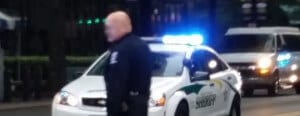Can You Plea Bargain a North Carolina DWI Case? 
After being arrested and charged with a Charlotte DUI, many clients will ask can we ask for a plea bargain and try to get a reckless driving charge instead? This is a fair question, and in most states, that option is available. In South Carolina, the laws allow for a reduction in charges at the prosecutor’s discretion. However, they do not offer such reduced pleas easily. Usually, an plea offer is made if there are problems with the State’s case that may make a conviction difficult. In North Carolina, by contrast, such plea offers are strongly discouraged and are quite rare. In fact, the DWI laws require the District Attorney to declare in open court after completing written reports why they are pleading a DWI down to something else. In my own experience, judges seem skeptical of cited reasons and may even deny the prosecutor’s request to reduce a DWI charge.
It was recently noted that courts can resolve approximately “50,000 speeding tickets faster than it can handle 2,000 impaired driving cases, because [the DWI cases are] so complex and take time.” I am not sure why such comparisons are being made. I suppose such studies only support the lay public’s perception that there are “quotas” in every county for traffic tickets. But such comparison really is “apples to oranges” given the legal complexity and drastic permanent consequences of a DUI conviction or plea. In response to this crisis, the stereotypical offered “solution” is to simply hire more prosecutors and judges to handle the increased caseloads rather than to amend current DWI laws. However, one study done nearly ten years ago found that arresting and imposing more sanctions on those persons who drive while impaired “is not logistically feasible without a massive infusion of additional resources at all levels of the criminal justice system.” National Cooperative Highway Research Program Report 500, Volume 16: A Guide for Reducing Alcohol-Related Collisions (2005) (NCHRP Report). Of course, the term “additional resources” is simply a clever way to mean “more money.” There is a limit to the taxpayers’ ability to fund the seemingly never ending expansion of government projects, even when it is about “public safety.” Leave it to the criminal defense bar to suggest a better and more efficient way to deal with this issue.
No Current Ability to Plea Bargain DUI Cases
Many DUI attorneys, including myself, know that DWI cases could be resolved more effectively if only the parties had the legal ability to plea-bargain. Under current North Carolina DWI law (NCGS Section 20-138.4), prosecutors are not allowed to dismiss or reduce DUI charges in their discretion without first explaining orally in open court and also reporting their specific reasons in writing as to why they want to take such action. Most prosecutors rightly interpret this requirement to be a legislative directive to resist reductions and dismissals in virtually all circumstances. There have been documented cases where District Attorneys have sought to reduce a DWI case but are rebuffed by the judge and refused to accept a lesser charge offered in plea. According to some “national experts,” such rarity in plea bargains is a “good thing” who claim that diversion programs and plea bargains only serve to “undermine the integrity of DWI countermeasure programs, allowing individuals to escape appropriate punishment and preventing states from treating [repeat] offenders more seriously.” NCHRP Report at V-5, V-6.
Sentencing Levels Are Also Non-Discretionary In DWI Convictions
As with DWI charges, there is no ability to negotiate when it comes to sentencing for DWI. Under NCGS Section 20-179, prosecutors are required to charge any grossly aggravating and aggravating factors to the court. In response, DUI defense lawyers are then permitted to offer any mitigating factors. These factors largely control the ultimate level of punishment assessed against the defendant. Judges have actually been sanctioned for deviating from this mandatory sentencing scheme. When a defendant has no ability to plead their case to something less serious charge, they also have no incentive to plead guilty to the charge. As a result, they may decide to go to trial, as is their right, and require the State to prove them guilty. Of course, such option will take up valuable court time and make an already bad situation even worse. The courts in Mecklenburg County are hearing cases up and until 5:00, even on Friday afternoons. The system is worse is other counties and can barely keep up with the volume now.
